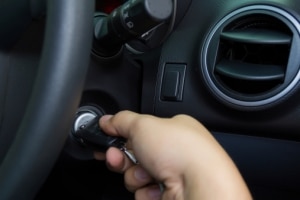 It is illegal to drive while under the influence of drugs or alcohol. In order to deter and punish individuals convicted of driving while under the influence of alcohol or drugs (DUI), a number of states have mandated that people convicted of a drunk driving charge will need to install an ignition interlock device in their cars. Tennessee, which has some of the most draconian DUI laws in the country, mandates the use of ignition interlock devices in certain situations.
It is illegal to drive while under the influence of drugs or alcohol. In order to deter and punish individuals convicted of driving while under the influence of alcohol or drugs (DUI), a number of states have mandated that people convicted of a drunk driving charge will need to install an ignition interlock device in their cars. Tennessee, which has some of the most draconian DUI laws in the country, mandates the use of ignition interlock devices in certain situations.
What are ignition interlock devices?
Ignition interlock devices prevent vehicles’ ignition from working in the event that the driver is drunk. Usually, IIDs are placed in vehicles’ glove compartments and hardwired to the ignition systems. Before you can drive, you have to breathe into a handheld alcohol detector, generally kept on dashboards. If your breath alcohol concentration is deemed normal, the vehicle starts. If you’re over the limit, it doesn’t.
How do ignition interlock devices work?
The devices possess computer chips that store drivers’ BAC in the devices’ memory; these computer chips also assist the devices determine whether drivers are drunk or sober, and send the data, BAC test results, and any tampering to police and other authorities. So even if the car doesn’t start, the cops know you tried to get behind the wheel when you’ve been drinking.
Furthermore, some IIDs have additional features, such as capabilities for “rolling tests,” or alcohol tests that happen after drivers have been driving. When rolling tests happen varies, but they often happen anywhere from five minutes to a half hour after drivers have been driving. If drivers do not offer BAC samples for the devices to analyze or have BAC levels over the legal and/or pre-programmed limit during any rolling tests, the IIDs honk the vehicles’ horns or flash the vehicles’ lights in order to issue warnings and sound alarms that the drivers are intoxicated. The alarms will keep sounding unless the ignition is turned off.
When would you be forced to get an ignition interlock device after a DUI?
Under Tennessee law, any of these could lead to a mandatory ignition interlock:
- A BAC of at least 0.08 percent while you’re driving
- Getting into an auto accident which required police response
- Violating the “implied-consent,” impaired underage driving, “open-container,” or the reckless driving statutes
Tennessee law dictates that individuals with restricted driver’s licenses use IIDs for the whole period, during which their licenses were restricted, and to keep using IIDs until six months have passed since the restrictions on their licenses have ended.
How long you must wait before regaining your full driving privileges depends on the number of offenses committed. For instance, first-time offenders have their licenses suspended or restricted for twelve months, and second-time offenders have their licenses suspended or restricted for 24 months. Third-time offenders have their licenses revoked for six years while fourth-time, fifth-time, sixth-time, etc.
Facing a DUI charge? The Sevierville DUI defense attorneys at the Law Office of Bryan E. Delius have your back. We fight to protect your rights and your driving privileges. To schedule a consultation at our office, please call us at (865) 428-8780 or fill out our contact form. We are proud to represent clients in Sevierville, Seymour, Gatlinburg and Pigeon Forge.

Attorney Bryan E. Delius was born and raised in Sevier County, TN. He founded Delius & McKenzie more than 20 years ago, after receiving his JD from the University of Tennessee at Knoxville. He is admitted in Tennessee and in several federal court systems. Learn more about Bryan E. Delius.




